To clean perfume bottles, start by gathering supplies like vinegar, dish soap, and uncooked rice. Next, mix equal parts warm water and white vinegar with a few drops of mild soap. Add uncooked rice to the bottle and shake vigorously to scrub away residue. Rinse thoroughly with warm water and let the bottle air dry completely upside down. Finally, store your spotless bottle in a cool, dark place. These basic steps will help you master the art of bottle cleaning.
Prepare Your Bottle and Cleaning Tools

Before diving into the cleaning process, you'll need to gather the right supplies and prepare your workspace properly.
Start by collecting vinegar, mild dish soap, uncooked rice, soft brushes, and lint-free cloths. Make sure you have cotton swabs and appropriate brushes for your specific bottle type.
Gather essential cleaning supplies like vinegar, dish soap, rice, brushes, and cloths before starting your perfume bottle restoration project.
Empty your perfume bottle completely, transferring any remaining fragrance to a smaller container using a funnel.
Set up a stable, padded workspace to prevent accidents with fragile bottles. Identify your bottle's material – whether it's glass, crystal, or plastic – as this will determine which cleaning methods you'll use.
Keep your cleaning supplies within easy reach and handle delicate components like stoppers or spray mechanisms with extra care.
Label your empty bottle to avoid confusion with filled ones.
Mix a solution of warm water and vinegar for effectively removing stubborn stains and residues.
Mix the Perfect Cleaning Solution
While many commercial cleaners are available, creating your own perfume bottle cleaning solution proves both effective and economical.
You'll want to start with equal parts water and white vinegar – about 2 cups of each works well. Add 2 tablespoons of mild dish soap per liter to boost cleaning power without risking damage to your bottles.
If you'd like a pleasant scent, consider adding 25 drops of your favorite essential oil to a 16-ounce mixture.
For extra cleaning power on stubborn residue, you can add a small amount of raw rice to act as a gentle scrubbing agent. Let it sit for about an hour to achieve optimal results. Avoid harsh chemicals like acetone, which can damage your bottles.
If you prefer a gentler option, Dr. Bronner's pure castile soap makes an excellent alternative to dish soap.
Deep Clean With Rice and Vinegar Method
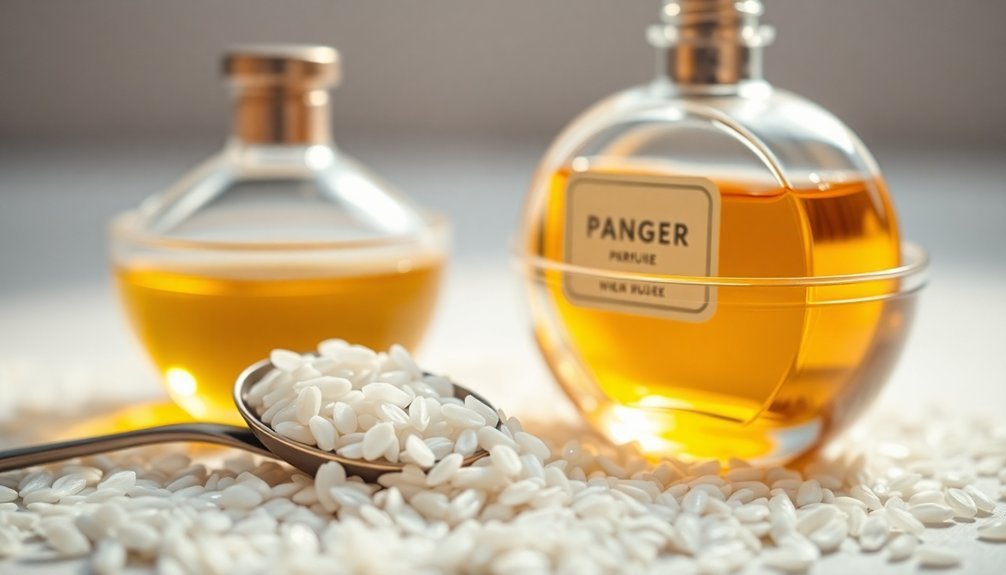
The rice and vinegar method offers three powerful advantages for deep-cleaning perfume bottles: gentle abrasion, natural degreasing, and odor elimination.
Pour equal parts warm water and white vinegar into your bottle, then add a teaspoon of uncooked rice. Shake the mixture vigorously to let the rice scrub away stubborn residues while the vinegar dissolves oils and removes lingering scents. Adding a teaspoon of mild liquid soap enhances the cleaning power.
For tough buildup, let the solution sit for an hour or overnight.
You'll want to rinse thoroughly afterward with clean water to remove all traces of vinegar. Use a soft-bristled brush to clean any intricate areas or the bottleneck.
Once you're done, dry the bottle completely with a lint-free cloth before reassembling to prevent moisture damage. This combination of rice and vinegar provides both physical and chemical cleaning power.
Rinse and Dry for Spotless Results
After completing your deep cleaning routine, proper rinsing and drying become critical steps for achieving truly spotless perfume bottles.
Start with warm water to rinse thoroughly, ensuring you've removed all cleaning agents and residue. You'll need multiple rinses, and you can use a gentle brush for hard-to-reach areas.
For drying, position your bottle upside down on a clean towel and let it air dry completely. Don't wipe the inside with cloth, as this can leave lint behind.
It's crucial to check that no moisture remains, as any dampness can lead to mold or unwanted odors. Before you store or refill your bottle, verify it's completely dry and free from any previous fragrances.
This careful attention to rinsing and drying will help maintain your bottle's quality and extend its lifespan.
Restore and Store Your Perfume Bottle

Properly restoring and storing your perfume bottles guarantees their longevity and maintains their aesthetic appeal. After cleaning, use soft, lint-free cloths to dry your bottles thoroughly, ensuring no moisture remains that could dilute the fragrance.
Store your bottles upright in a cool, dark place away from direct sunlight to prevent chemical degradation. You'll want to use tight corks or stoppers to protect against oxidation.
If you're planning to reuse the bottle, make sure it's compatible with your intended fragrance or essential oil.
For display purposes, arrange your bottles in an aesthetically pleasing manner, but keep less frequently used ones in cabinets or drawers.
Don't forget to use protective wrapping or cases when storing valuable or vintage pieces to prevent scratches and damage.
Frequently Asked Questions
Can I Clean Antique Perfume Bottles Using These Same Methods?
You'll need to be more gentle with antique perfume bottles. Use cold water, avoid rice scrubbing, and handle with extreme care. Stick to soft brushes and minimal cleaning to preserve their historical value.
How Do I Remove Stubborn Labels From Perfume Bottles?
Soak your bottle in hot, soapy water to loosen the label. For stubborn adhesive, use a baking soda paste or Goo-Gone. You can carefully scrape with a plastic tool to remove remaining residue.
What's the Best Way to Clean Decorative Bottle Stoppers?
Gently wash your decorative stoppers with mild dish soap and warm water. You'll want to use a soft cloth, then dry thoroughly. For intricate details, try using q-tips with alcohol for precise cleaning.
How Often Should I Clean Bottles That Contain Essential Oils?
You'll need to clean your essential oil bottles immediately after they're empty and before each refill. If you use them frequently, clean monthly to prevent residue buildup and cross-contamination of different oils.
Can I Use Rubbing Alcohol Instead of Vinegar for Cleaning?
Yes, you can use rubbing alcohol instead of vinegar. It's actually more effective at dissolving oily residues. Just guarantee you're working in a well-ventilated area and thoroughly rinse afterward to remove any alcohol traces.
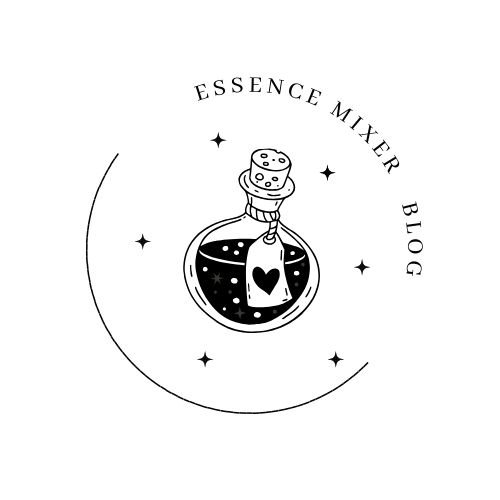
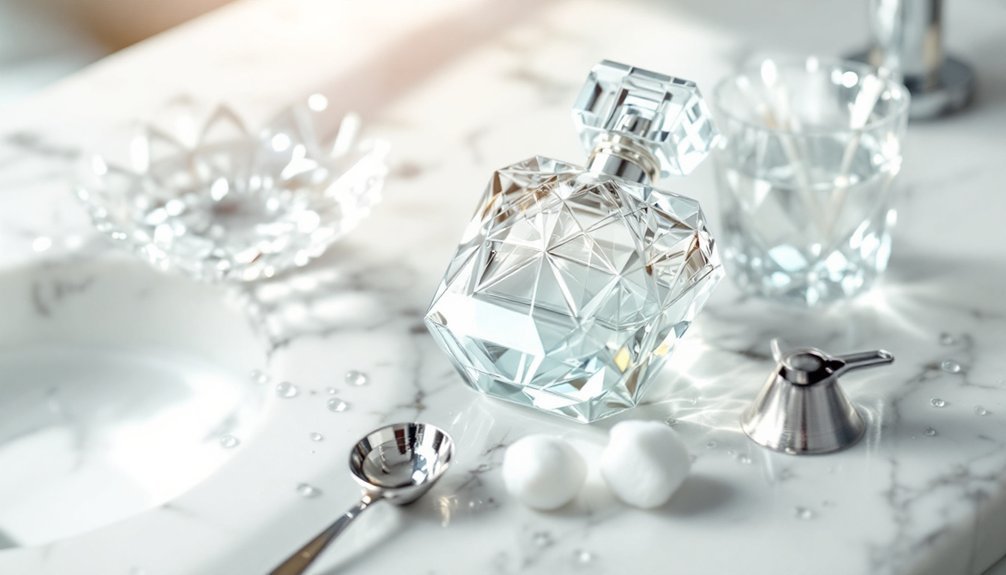
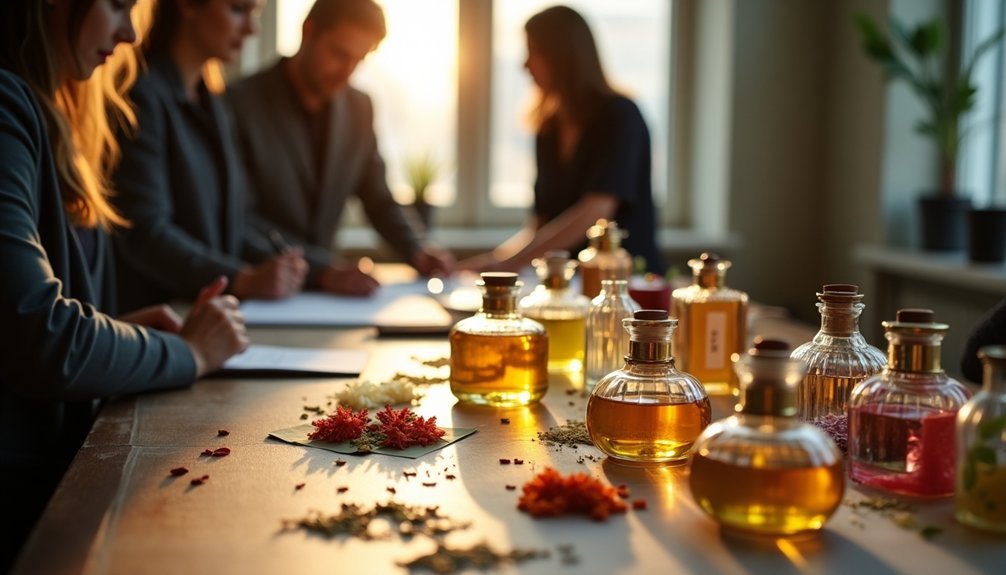
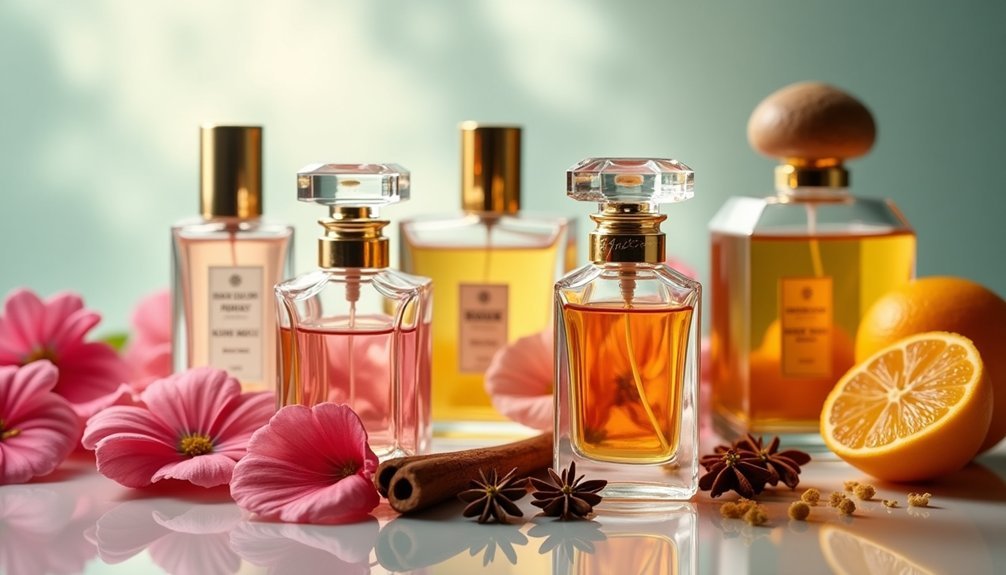
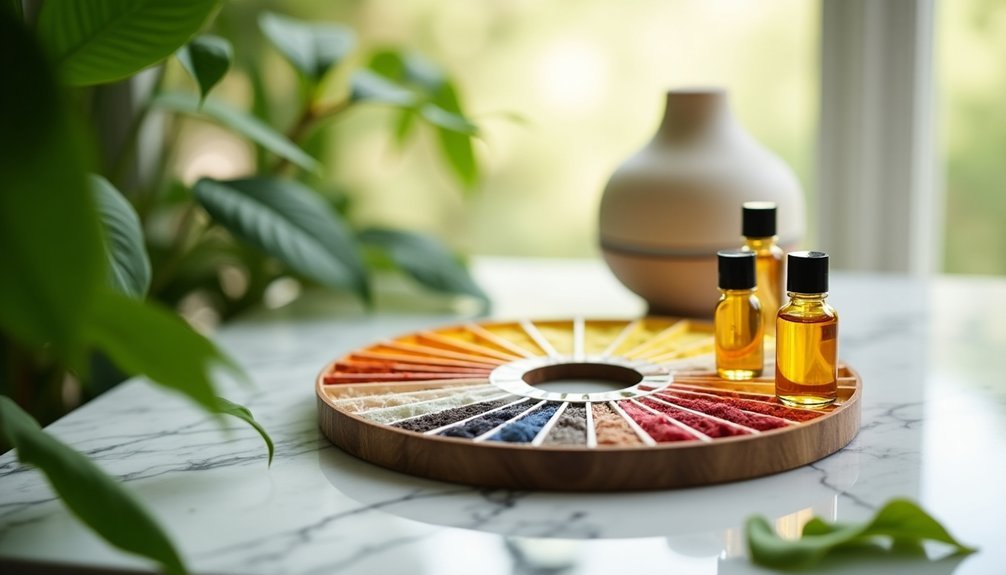
Leave a Reply